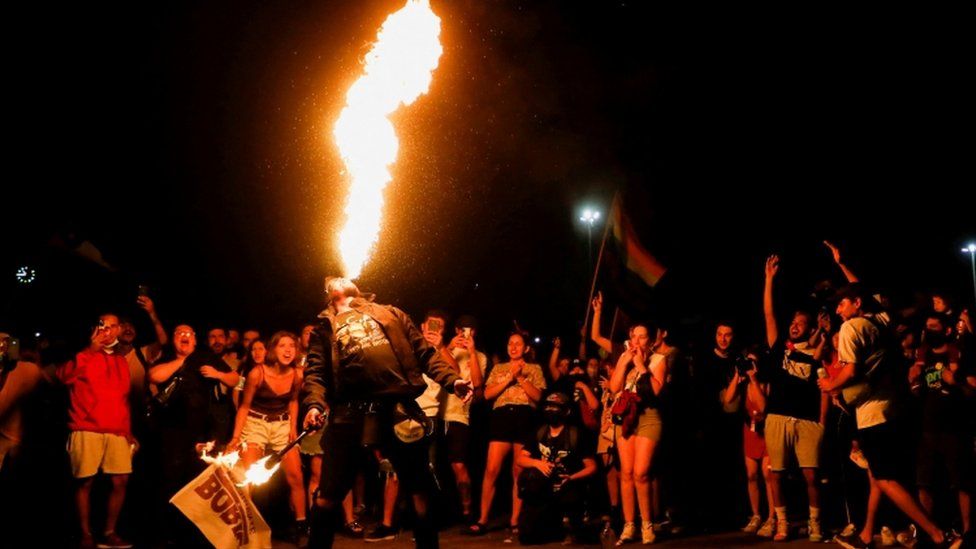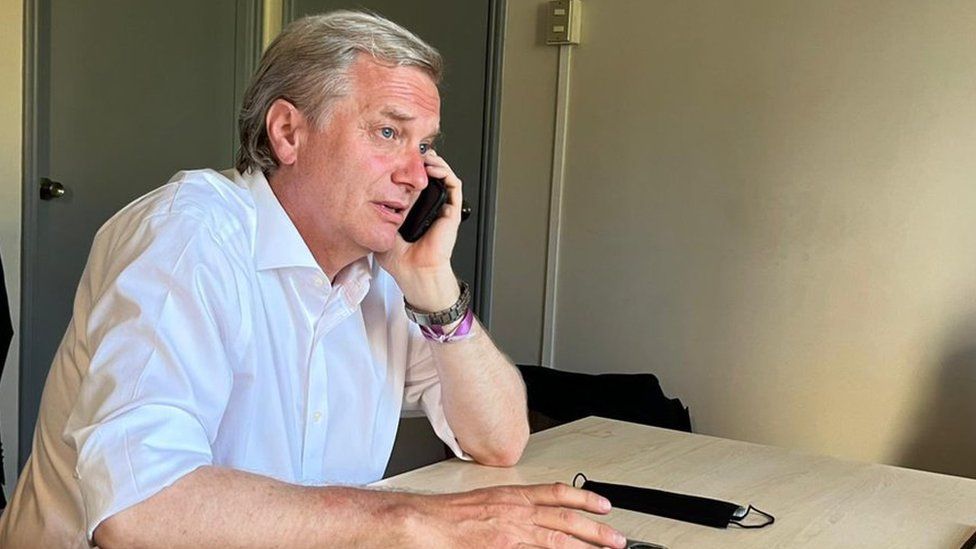Monday, 20 December 2021
Peng Shuai: Chinese tennis star denies making assault claim as concerns persist
Covid: Christmas travel will fuel spread of Omicron, US expert warns
West Virginia Senator Joe Manchin kills Biden’s BBB agenda on Fox
Myanmar mass killings revealed
Leftist Gabriel Boric to become Chile’s youngest ever president
Leftist candidate Gabriel Boric has won Chile’s presidential election to become the country’s youngest ever leader.
In what was expected to be a tight race, the 35-year-old former protest leader defeated his far-right rival Antonio Kast by more than 10 points.
Mr Boric told supporters he would look after democracy, promising curbs on Chile’s neoliberal economic model.
He will lead a country that has been rocked in recent years by mass protests against inequality and corruption.
Mr Boric’s victory prompted celebrations on the streets of the capital Santiago, with his supporters waving flags and honking car horns.
In his speech, Mr Boric said he was taking on the job with humility and a “tremendous sense of responsibility”, vowing to “firmly fight against the privileges of a few”.
“We have an enormous challenge. I know that in the coming years, the future of our country is at stake, so I guarantee that I will be a president who cares for democracy and does not risk it, listens more than speaks, seeks unity, and attends to the needs of the people daily,” he told supporters.
Official results gave Mr Boric 56% of the votes against Mr Kast’s 44%. Mr Kast conceded defeat barely an hour-and-a-half after polls closed, and with around half of ballots counted.
Both candidates offered starkly different visions for the country, and both are outsiders representing political parties that have never been in government.
 IMAGE SOURCE,REUTERS
IMAGE SOURCE,REUTERSOnce the most stable economy in Latin America, Chile has one of the world’s largest income gaps, with 1% of the population owning 25% of the country’s wealth, according to the United Nations.
Mr Boric has promised to address this inequality by expanding social rights and reforming Chile’s pension and healthcare systems, as well as reducing the work week from 45 to 40 hours, and boosting green investment.
“We know there continues to be justice for the rich, and justice for the poor, and we no longer will permit that the poor keep paying the price of Chile’s inequality,” he said.
The president-elect also promised to block a controversial proposed mining project which he said would destroy communities and the national environment.
- ON THE GROUND: Chile’s dark past hangs over presidential run-off
Supporters responded to the victory with uncontained joy.
“I’m very excited because this is an achievement of the people,” Andres Rodriques told Reuters news agency. “There have been many years of abuse and we need a renovation within politics. I have a lot of faith and hope in the youth.”
Patricia Alarcon said she was really happy. “I always had faith in Boric because I think our country deserved this – we deserved freedom, integration – we deserved this result,” she said.
A former student protest leader, Mr Boric backed the mass demonstrations against inequality and alleged corruption that rocked Chile in 2019 and 2020.
 IMAGE SOURCE,SOCIAL MEDIA
IMAGE SOURCE,SOCIAL MEDIAHis rival, meanwhile, stood on a platform of law and order, pledging cuts to tax and social spending.
Mr Kast also defended the legacy of Gen Pinochet, who took power in a coup and ruled the country from 1973 to 1990. Under his leadership more than 3,000 people were murdered by the state or disappeared, and thousands of political opponents were held in internment camps.
In a tweet, Mr Kast said he had called Mr Boric to congratulate him on his “great triumph”.
“From today he is the elected President of Chile and deserves all our respect and constructive collaboration,” he added.
The country is going through huge changes after voting overwhelmingly last year to re-write Chile’s Pinochet-era constitution.
Outgoing President Sebastián Piñera said Chile was living in “an environment of excessive polarisation, confrontation [and] disputes,” and urged his successor to “be the president of all Chileans.”
………………………………………………………
Ethiopia war: World heritage site Lalibela back in government hands
A Royal Encounter at Madame Tussauds London - Part 7
Exploring the Majesty of the Palace and Its Distinguished Guests Greetings, ladies and gentlemen! My name is Sofonie Dala, and I am deligh...

-
Since the July 26 coup, Niger has become the latest hotbed of disinformation in the troubled Sahel region as West African powers grapple wit...
-
Angolan President of Republic João Lourenço marked Saturday (26) the third year of his five-year in office, marked by the strong negative ...
-
Celebrating Purpose, Passion & Powerful Public Engagements! Dear Changemakers, As we reach the midpoint of 2025, we’re thrilled to sha...






